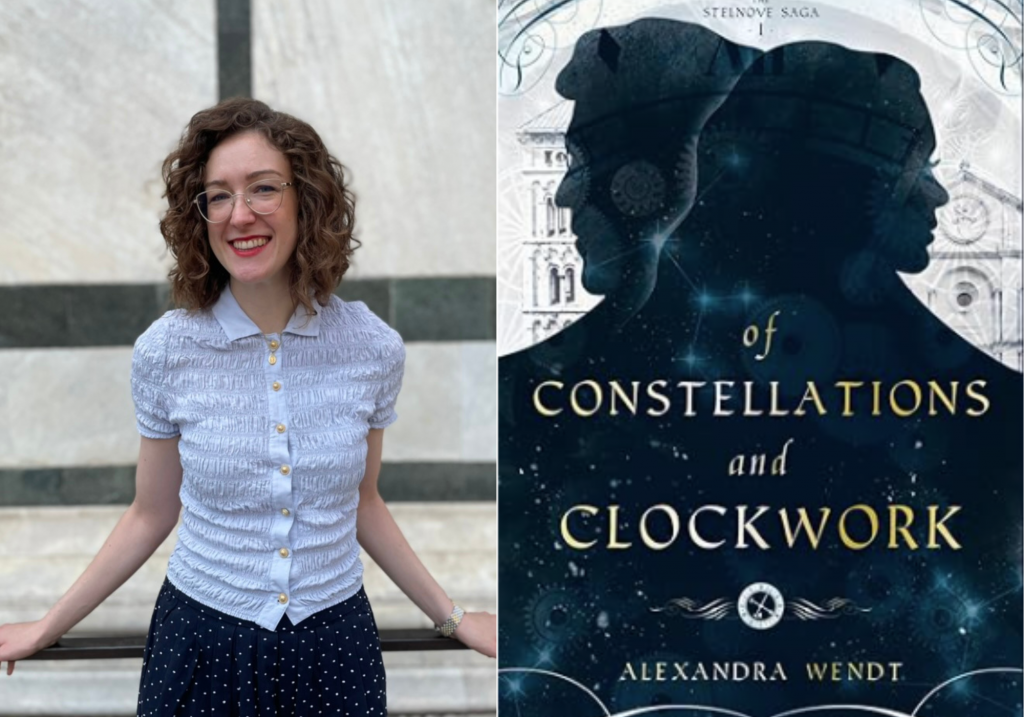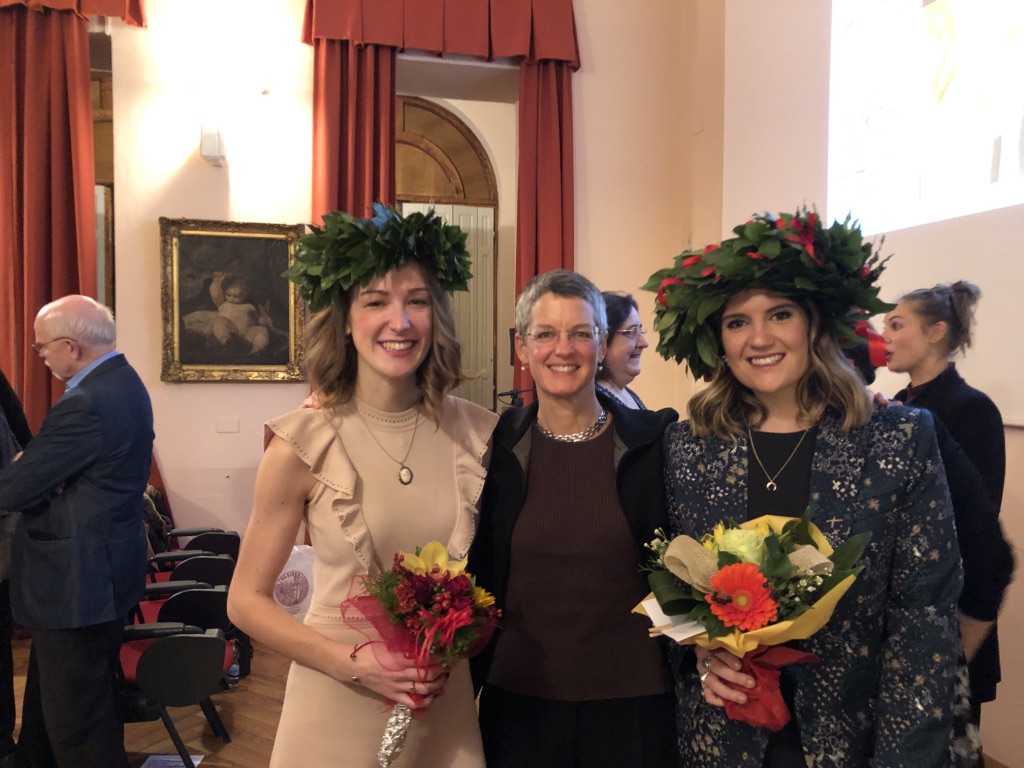
Alexandra Wendt graduated from our Master’s in Renaissance Art History program in 2019. She tells us more about how her time in Florence impacted the novel she recently published, Of Constellations and Clockwork, a fantasy novel for New Adults. She now lives in Northern Italy and recently presented her book at Vineria Sonora wine bar in Florence.
Congratulations on the publication of your book! Could you please tell us how it came to be?
Thank you! The story was indirectly inspired by my time in Florence. I found the city, aesthetically, to be greatly influential for the kind of setting I wanted to work with. Whereas the story itself, and the emotional arc the main character undergoes, came more from a personal crisis I experienced in late 2020. I initially wrote it to grapple with what I was going through and to figure out what I was feeling, but then as I revised it and got feedback from others, it grew into something much bigger.

Did your experience in our art history grad program impact the book’s content?
Definitely! While the book is high fantasy, and therefore not set in our world, I based the world off of late 15th century Italy, which was something I studied a lot during the grad program. We would read and discuss so many historical anecdotes in our seminars that I became inspired to do something creative with all the information I’d taken in. I still have quite a few books that I used for my classes, and so I took to re-reading those while revising for further inspiration.
Do art historians have an advantage in tackling fiction writing?
I certainly think so–there is something interesting about our discipline in that we are at once dealing with an inherently creative subject matter (art), yet examining it analytically. I think many who are drawn to this field initially are due to an attraction to beauty and appreciation for the art itself. It then requires a fine balance to utilize both that aesthetic appreciation and a distanced analysis for a sound argument in a paper. Fiction writing requires a similar approach. You must first have a genuine love for the story you’re telling–and a certain amount of creativity to go along with it–but then you need to be able to step back and look at it critically in order to revise and edit it.

Any advice for budding student writers?
Write, write, write. I’ve heard it said often that you shouldn’t publish the first book you write, and I think it’s true. Of Constellations and Clockwork was the ninth novel I wrote, and in hindsight, I’m glad none of the previous ones were published. It takes multiple books to understand what kind of things you like to write, what works, and to figure out what makes a story uniquely “yours,” compared to other works out there. Read widely in your genre and outside it, and read craft books, but don’t be afraid to bend the rules a bit too.
